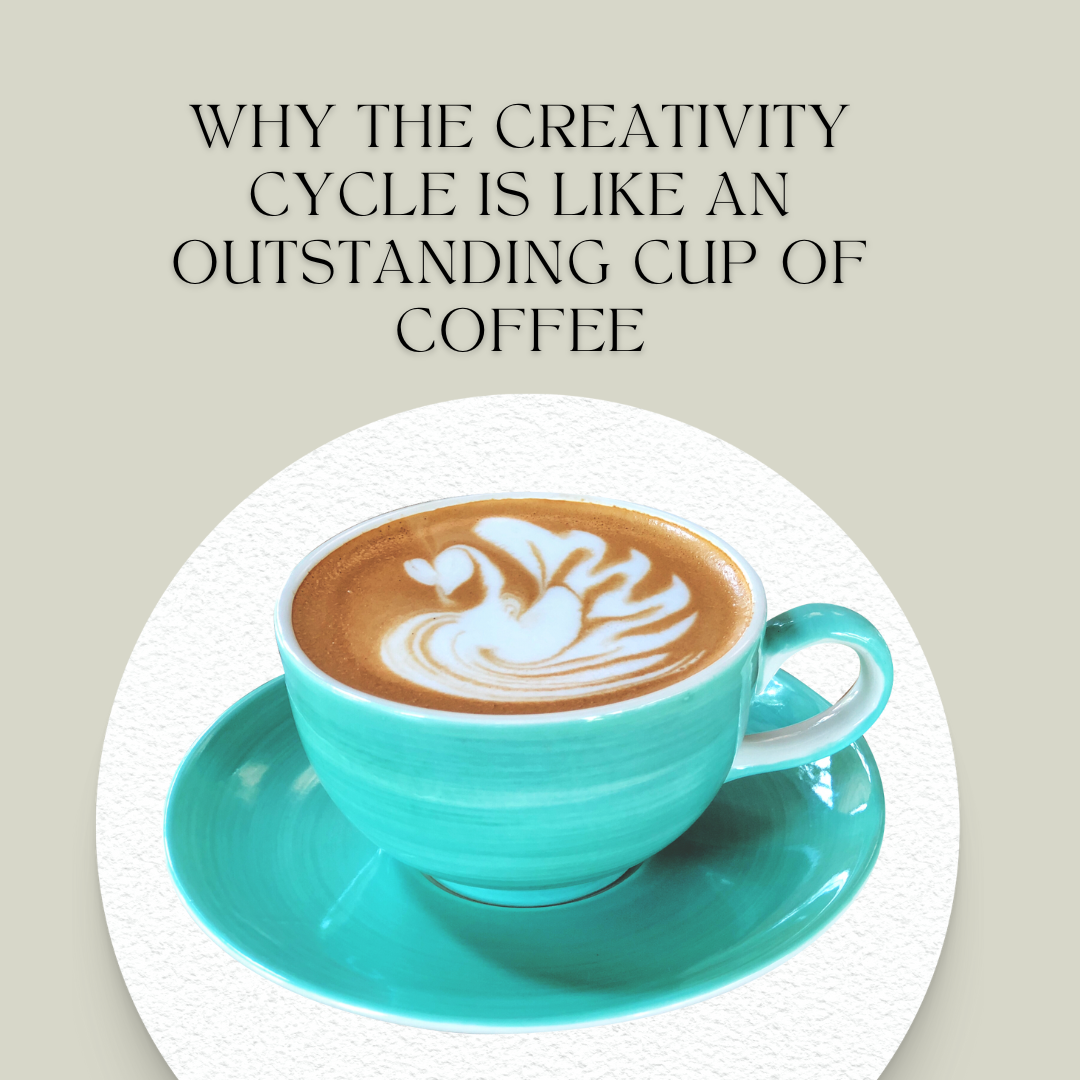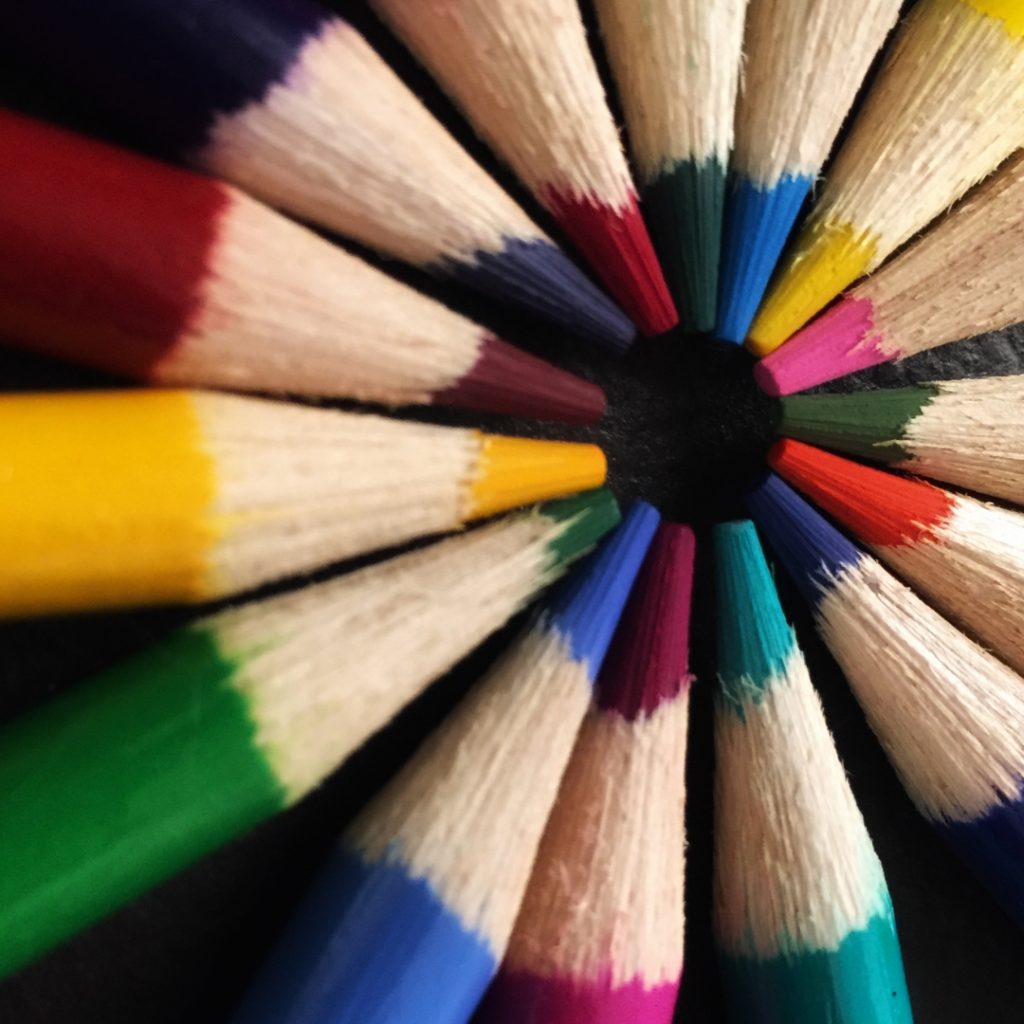Welcome to the heartbeat of Integrative Counsel, our blog where tranquility meets transformation. This is your sanctuary for insights and wisdom on nurturing a harmonious connection between mind, body, and spirit.
Why the Creativity Cycle is Like a Cup of Coffee

The creativity cycle is complex. If you’re like most people, your standard cup of “morning joe” is okay. It serves a function by helping you go from barely functional to getting you through your routine each morning.
However, the standard cup of coffee is very different from a fantastic cup of coffee that’s so good, it makes you stop and savor each sip. So, what separates an okay cup of coffee from a superb one?
 It begins with intention — the desire to make a great cup of coffee. Allowing yourself enough protected time to go through the process is important, too, as is your knowledge and understanding of the steps involved. This knowledge can include far-ranging topics such as the quality of the beans and how to store them properly, roasting types and preferences, timing of grinding, filtering techniques, water quality, and temperature and equipment standards. This is a far cry from scooping some coffee grinds into a machine, pouring in water, and turning the button from black to red. And, so is the result.
It begins with intention — the desire to make a great cup of coffee. Allowing yourself enough protected time to go through the process is important, too, as is your knowledge and understanding of the steps involved. This knowledge can include far-ranging topics such as the quality of the beans and how to store them properly, roasting types and preferences, timing of grinding, filtering techniques, water quality, and temperature and equipment standards. This is a far cry from scooping some coffee grinds into a machine, pouring in water, and turning the button from black to red. And, so is the result.
Similarly, there is a large divide between producing an adequate product or service and creating something that awes, inspires, disrupts — or all of the above. Like making a remarkable cup of coffee, you need to know each specific ingredient and step required to make a great product or service.
There are distinct stages in the creative process, which we will dive into in our next article in this series.
First, let’s examine the concept of creativity itself.
Creativity is a word that has an almost magical connotation because it’s often assumed that it’s an attribute of only a select and chosen few. Many people believe that you have to be an amazing visual artist to be creative. Some also believe that creativity cannot truly be defined, because of its utter uniqueness. But the good news is, all humans are creative. Our earliest ancestors had to be creative in order to survive, and it’s still hardwired into our brains.
So, the question isn’t “How creative are you?”, but rather “How are you creative?”
 Perhaps surprisingly, one of the key ingredients of creativity is constraint. Creativity functions best when it is understood and practiced within a framework, and it blossoms within defined boundaries.
Perhaps surprisingly, one of the key ingredients of creativity is constraint. Creativity functions best when it is understood and practiced within a framework, and it blossoms within defined boundaries.
For instance, when making a cup of coffee, the equipment, steps, ingredients, and processes are pretty well-defined. Within that structure, it is possible to create something anew, as well as to question what had been previously assumed as “obligatory”. A great example of this approach is the recent popularity of nitro cold brew coffee. All that said, you still need coffee, liquid and and equipment, and you’re still working within the structure of “coffee making”.
Furthermore, there is a risk of getting lost in the creative process once you are in it. Think of how many brilliant ideas never made it beyond the brainstorming phase. Not because it wasn’t a great idea, or because funding wasn’t available, or because of functionality questions; but rather, because the person who generated the idea became too bogged down in the details — or in their personal “stuff”, which will inevitably surface. So structure not only provides perspective and clarity, it protects fledgling ideas and supplies energy for the long haul.
Different skill sets are needed at each stage of the creative process, and it’s wise to plan for this. If you know where you are at any given stage, you can seek assistance to close any gaps in knowledge that might arise, and then continue with the process, rather than giving up or going back to the drawing board. This is how you turn your idea into an original new product, service, or methodology that can set you apart from your competitors.
Another critical ingredient in the creativity cycle is fostering a culture in which it’s supported — in all of its stages.
Feelings of fear, loathing, and failure are inevitable parts of the process and can arise anew in each stage. If you want to create a work environment that encourages creativity, it’s a good idea to ask yourself whether or not your current culture welcomes these challenging feelings as signs of growth and the arrival of something new. If they are considered taboo, you will need to plan on how to address them when they come up.
One of the most challenging aspects of creativity is the temptation to take feedback personally. Creativity feels extremely intimate, like shining a bright light on our most soft and vulnerable parts, so we can be very sensitive when it comes to hearing comments and criticism from our peers. It can take a tremendous amount of self-awareness to manage the emotions that can come up. In general, it’s a good idea not to take yourself too seriously, and to do your best to keep a sense of humor throughout the process. Training your team or staff on how to provide feedback in a compassionate and constructive way is also very helpful.
To recap, some of the necessary ingredients of the creativity cycle might seem antithetical at first, such as:
- Protection (for instance, of time and culture)
- Universality (We are all born creative!)
- Constraint (Including understanding the various stages of the creative process. Stay tuned for our next article)
- Fear (and a whole gamut of “negative” feelings)
- Not taking it personally (What can be born from the creative process has the potential to be life-altering, but if you start taking yourself too seriously, the creativity is already doomed)
You might not always choose to journey through the creative process — just like you might not always choose to make that outstanding cup of coffee. However, once you taste and experience the difference, you will truly understand how it is hard to go back to just “okay”.
Stay tuned for part two of this series, in which we’ll we describe the cycle of creativity and its relationship to our current understanding of the brain.
Dayna Wood is the founder of Integrative Counsel; at Integrative Counsel, we offer an eclectic style of treatment that integrates the mind, body, and transpersonal. Our “special sauce” combines creative, out-of-the-box thinking with solid scientific research so our clients get the best of both worlds. Our team of experienced counselors has specialized knowledge in relationships, trauma, OCD, and other expansive therapies – aiding people in uncovering deep-rooted emotions and beliefs that remain the cause of present-day symptoms so they can experience more persistent breakthroughs. We understand that mental health is more than just its symptoms!
November 7, 2023
Click here to book a consultation call and start navigating your personal path to mental harmony with a therapist who gets you. Your journey, your pace, your story—let's unfold it together.
Let's keep the conversation going.
Feeling the spark to light up your wellness journey?
resources
CONTACT
RATES
join us
shop
SERVICES
OUR APPROACH
visiting professionals
OUR TEAM
HOME
727.342.0054
hello@integrativecounsel.com
Integrative Counsel is committed to providing culturally competent services. We respect the uniqueness of every person including, but not limited to race, ethnicity, gender identity, sexual orientation, class and religious affiliation.
